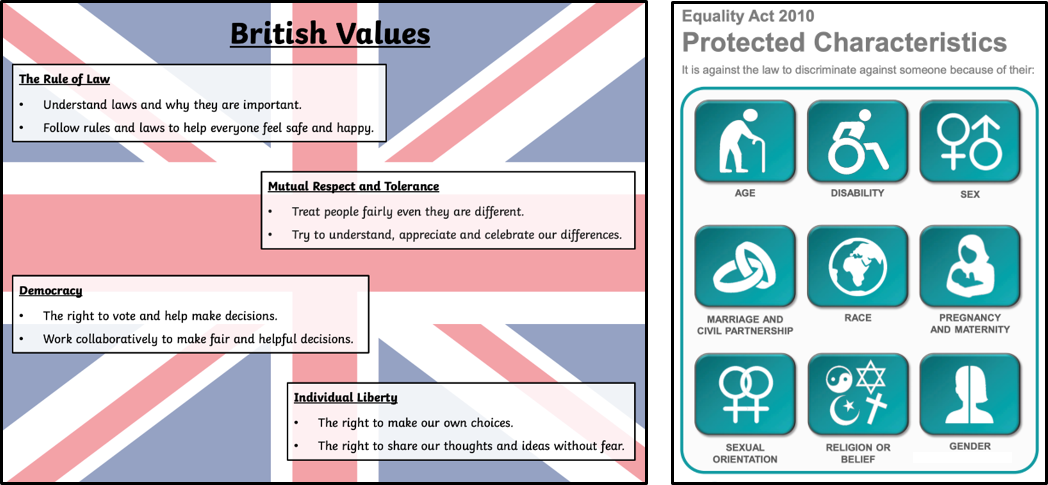PSHE & RSHE
Personal, Social, Health and Economic (PSHE) Education
At Catherine Junior School, our PSHE curriculum develops the skills and knowledge our pupils need to lead safe, happy and fulfilling lives in modern-day Britain and as global citizens. It plays a vital role in our personal development programme by teaching the children about how the Catherine Code, British Values and our school's ethos of inclusion and collaboration applies to life beyond the classroom. This ensures that pupils know how to uphold the laws, including the Equality Act, and values of our country. We understand that effective child development and high academic achievement are strongly linked to healthy living, well-rounded social and emotional skills, and a robust culture of safeguarding. We therefore incorporate local priorities in these areas to address the needs of our school community.
The school’s core curriculum principles underpin all teaching and learning in PSHE by:
- Ensuring that lessons reflect the experiences and diversity of our school community as well as the wider world, so that learning is relevant to our pupils today and the world in which we live.
- Creating a safe space for children to share their lived experiences and ideas appropriately, which is used to inform teaching and address needs effectively.
- Giving children opportunities to read about and explore carefully selected issues, scenarios and figures in order to develop their understanding of people, the world and themselves.
- Incorporating learning activities that allow children to develop and apply their oracy skills, so that they can use their voice to keep themselves safe, express their thoughts and feelings with greater confidence, and challenge others appropriately.
- Revisiting key concepts over time to ensure that vital knowledge is embedded in long term memory and so that pupils can reflect on challenging topics with the increasing maturity that age brings.
Relationships, Sex and Health Education (RSHE)
In 2020, the Department for Education (DfE) made lessons in relationships and health education statutory. This means that all primary school children must receive lessons about relationships and health. Relationships education lessons focus on family and friendships. Health education lessons focus on a range of topics about healthy living, including understanding how the human body changes during puberty. Sex education lessons are not statutory at primary school. The government recommends that all primary schools deliver a sex education programme tailored to the age and maturity of their pupils but parents may withdraw their children from these lessons if they wish.
The government published statutory guidance about what schools are required to teach as part of relationships, sex and health education lessons. This guidance is called ‘Relationships Education, Relationships and Sex Education (RSE) and Health Education’ and is available here. Our PSHE curriculum is fully aligned with the DfE’s guidance. Our RSE policy, which can be found here, provides further details about how this guidance is implemented at our school. It should be read in conjunction with the curriculum and progression maps below.
PSHE and RSHE curriculum map
Below is an overview of our PSHE and RSHE curriculum. The curriculum has evolved in a number of ways following feedback from parents during meetings in November 2022.
We used feedback from the school community, including teaching staff and parents, to ensure that our curriculum reflects:
- The age, maturity levels and needs of our pupils
- The cultural and religious backgrounds and values of our school community
- What pupils need to know to be healthy and safe in school and in the wider world
PSHE and RSHE progression map
This document provides an overview of how the skills and knowledge taught through PSHE progress across each year group. The progression map reflects when concepts are to be developed through our PSHE scheme of work. Whole-school initiatives, such as Anti-Bullying Week and Number Day, may introduce concepts earlier than outlined. For example, we promote Childline to children in all year groups at various points in the year but in Year 5, pupils have the opportunity to explore external forms of support in depth. They then build on this by considering why external support might be preferable to some young people because, at this point, pupils are mature enough to consider different perspectives and evaluate approaches.
Please contact Mr Khunti, who leads PSHE and RSHE, via the school office if you would like more information about our curriculum.

